Test Bank For Assessment Procedures for Counselors and Helping Professionals (8th Edition) (Merrill Counselling) 8th Edition
$35.00
Test Bank For Assessment Procedures for Counselors and Helping Professionals (8th Edition) (Merrill Counselling) 8th Edition
Category: Test Bank
- Author: Robert J. Drummond Carl J. Sheperis Karyn D. Jones
- File Format: PDF or Docs (Can be read on any devices)
Chapter 1: Introduction to Assessment
Introduction
What Is Assessment?
The Purposes of Assessment
Multiple Methods and Multiple Sources
The Assessment Process
Competencies Required for Assessment
Historical Perspectives
Assessment and Technology
Computer-Based Assessment
Internet-Based Assessment
Controversial Issues in Assessment
Summary
Moving Forward
Questions for Discussion
Suggested Activities
References
Multiple Choice Questions
- Which of the following statements is the most accurate?
- Assessment begins after the first face-to-face meeting with a client.
- Assessment occurs only in the first meeting with a client.
- Assessment occurs throughout the course of the helping relationship.
- All of the above.
- In addition to tests, professionals may also gather client information from:
- interviews
- observations
- collateral sources
- all of the above
- Which statement is correct?
- Assessment is only one part of the overall testing process.
- Testing is only one part of the overall assessment process.
- Testing integrates test information with information from other sources.
- None of the above
- _________________ is a quick process, usually involving a single procedure of instrument.
- Screening
- Testing
- Assessment
- Psychological evaluation
- Assessment involves selecting and utilizing __________ __________ of data collection.
- multiple observations
- multiple tests
- multiple methods
- multiple techniques
- A client is assessed to determine a course of outcome that would improve his or her concerns or problems. In this situation, the purpose for assessment is:
- screening
- identification and diagnosis
- intervention planning
- progress and outcome evaluation
- The first and most important step in the assessment process is to:
- determine if the client is suitable for services
- screen the client for potential problems and concerns
- identify the client’s problems to be addressed and the reason for assessment
- none of the above
- Identify the correct order of the steps of the assessment process:
- select and implement assessment methods; identify the problem; evaluate the assessment information; report assessment results and make recommendations
- identify the problem; select and implement assessment methods; evaluate the assessment information; report assessment results and make recommendations
- identify the problem; evaluate the assessment information; select and implement assessment methods; report assessment results and make recommendations
- select and implement assessment methods; evaluate the assessment information; identify the problem; report assessment results and make recommendations
- One of the first scales to differentiate between children who could or could not function in a regular classroom was developed by:
- Binet
- Otis
- Simon
- Thorndike
- Complaints about test use include all EXCEPT:
- Testing is an invasion of privacy.
- Tests are gender-biased and use inappropriate language, examples, and illustrations.
- Tests are culturally biased; they are unfair and discriminate against minority groups.
- Tests do not demonstrate a master of competencies; we must always rely on grades and diplomas.
- Testing began:
- Around 2000 years ago
- Around 500 years ago
- Around 100 years ago
- Around 50 years ago
- The first major personality assessment was also developed for use during:
- World War I
- World War II
- The Vietnam War
- The Gulf War
- In recent years, the prevailing political philosophy in the United States has changed from:
- a liberal to a more conservative orientation
- humanistic-based approaches to competency-based approaches
- low accountability in education to high accountability in education
- all of the above
- Early interest in measuring intelligence dates back to the late 19th century when __________________ applied Darwin’s evolutionary theory to attempt to demonstrate a hereditary basis for intelligence.
- Binet
- Galton
- Cattell
- Simon
- The first group intelligence test used in the United States military service was the
- Armed Forces Qualification Test
- Armed Services Vocational Aptitude Battery
- Army Alpha Test
- Army Beta Test
- Which of the following are advantages to using computer administered assessment instruments includes all?
- Increased delivery
- Potential time savings
- The ability for items to be adapted or tailored based on the test taker’s response to a previous item
- All of the above
- The primary purpose of _____________ is to gather background information about the client relevant to the reason for assessment.
- tests
- observations
- interviews
- collateral sources
- ________________ is an assessment method that involves watching and recording the behavior
- of an individual in a particular environment.
- Testing
- Observation
- Interviewing
- Reviewing records
Essay Questions
- Define the term “assessment,” and compare and contrast the four general purposes of assessment.
- Identify and describe the three broad categories of assessment “methods.” Explain the purpose of using multiple methods in assessment as opposed to a single assessment instrument.
- Compare and contrast formal assessment instruments and informal assessment instruments/strategies and provide three examples of each.
- List and describe each of the four steps of the assessment process.
- Trace the history of psychological and educational assessment from ancient time to the present.
Be the first to review “Test Bank For Assessment Procedures for Counselors and Helping Professionals (8th Edition) (Merrill Counselling) 8th Edition” Cancel reply
Related products
$35.00
$35.00

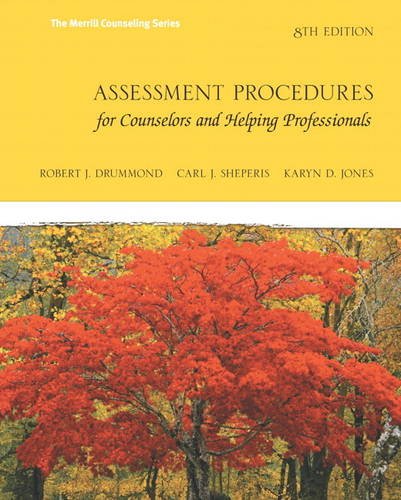


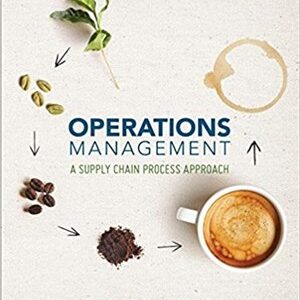
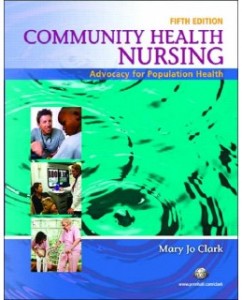
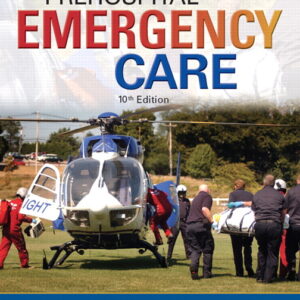


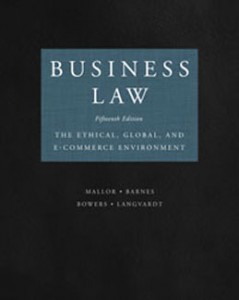

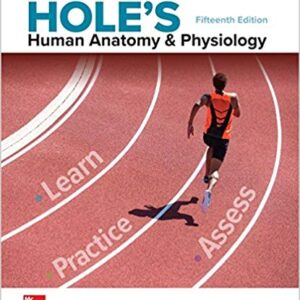
Reviews
There are no reviews yet.